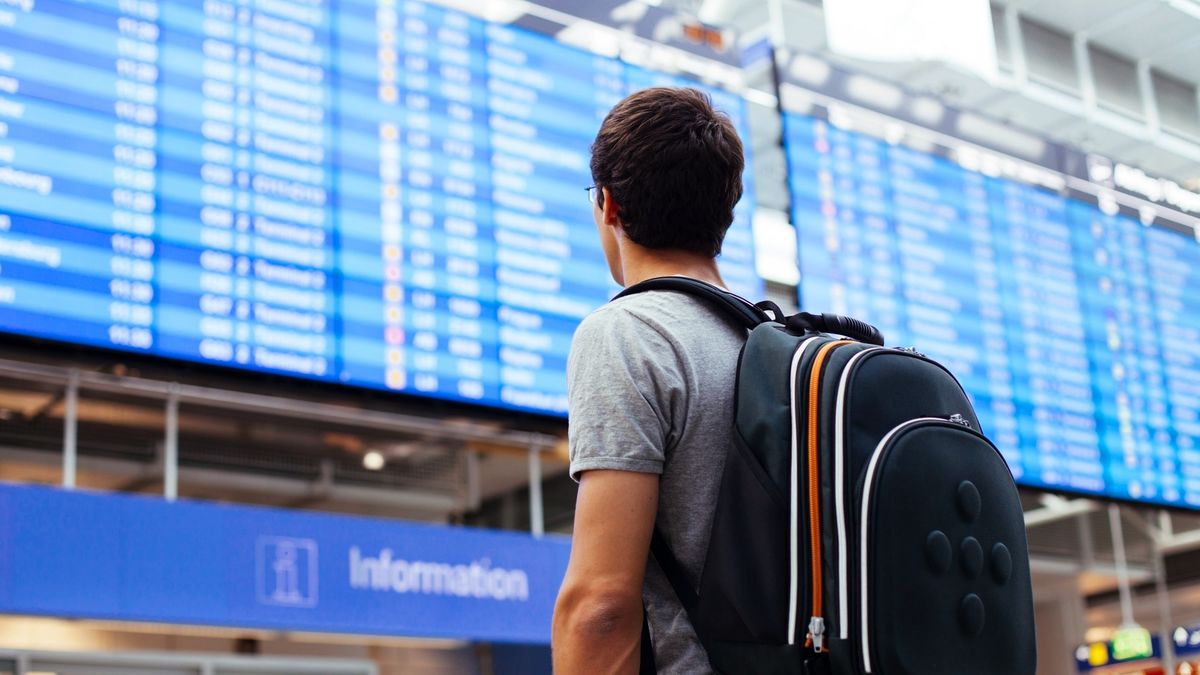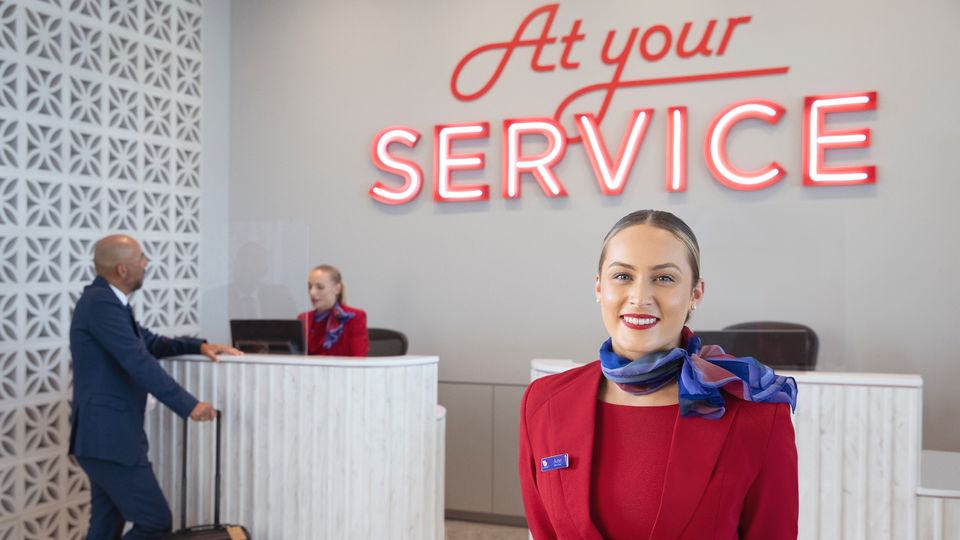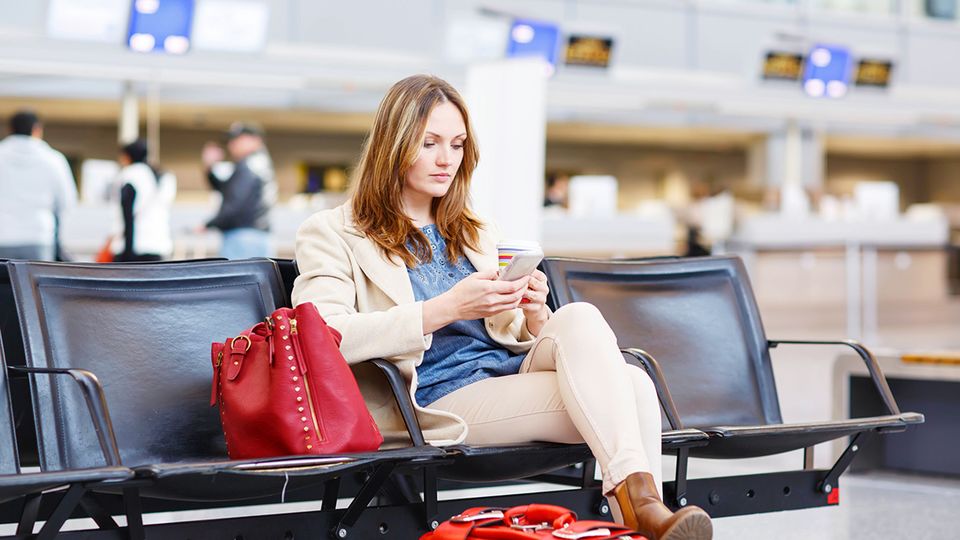Flight delayed? Follow these five simple tips
Delayed domestic or international flight? Here’s how to handle it – and maybe even receive compensation.

Flight delays are an unavoidable fact of life for travellers. But they happen, and can stretch anywhere from one hour to a day or more, depending on your airline and route.
At the very least, they add unwelcome stress to your trip and eat into your precious work or holiday time. And in the worst cases, a delayed flight has a ‘domino effect’ triggering missed connections and unexpected overnight stays in a hotel.
But when a delay strikes, there are ways to minimise the problems and help get your plans back on track..
1. Never be afraid to ask for an earlier flight
Last-minute delays or even cancellations on domestic routes can sometimes be overcome by moving to an earlier flight – especially if you’re already at the airport, even in the lounge, when the fate of your original flight is made known.
Don’t be afraid to request an earlier flight at the lounge, service desk or check-in counter, even if you’re booked onto the lowest-cost, non-flexible airfare.
The worst that can happen is that you’ll be denied that move – perhaps because you’re on that non-flexible ticket, or the earlier flight is full – but you lose nothing by asking, and you’ll be no worse off than before.
But if multiple flights from that airport are delayed – due to bad weather, for example – those queues can get lengthy, here’s what we’d do.
Assuming you’ve only got a cabin bag, take a quick look at the departures screen for any earlier flights to your destination, particularly ones already boarding, and head to one of those departure gates.
When the staff member manning the computer seems to have a spare moment, approach and say something like this:
“Hi, I’m booked onto flight (123) to (destination) which just got delayed by (X) hours. I’ve only got cabin baggage: any chance I could squeeze onto this flight if there’s room? I don’t mind if the seat is bad!”
If a seat is available, you may be in with a chance – so it’s better to ask than not.
End result: you arrive at your destination closer to the original time, the airline fills a seat that was about to fly empty,and the seat on the original flight is released for a last-minute booking or somebody else to fly ahead, so it’s a win all around.
2. Can’t get home earlier? See what your airline will cover
Depending on your airline and delay, you may receive nothing at all, be eligible for a meal voucher to spend at the airport or even receive complimentary overnight accommodation – so talk to your airline and see what they’ll provide.
Even if your travel insurance covers flight delays and disruptions, many insurers insist you contact the airline to see what can be done before submitting a claim.
After all, if the airline was willing to pay for a hotel but you went and booked your own, that’s not an expense many insurers would reimburse.
When you do incur out-of-pocket expenses beyond those covered by the airline, such as for meals, hotels, transfers, phone calls and other costs relating to your delay, be sure to keep all receipts to help substantiate a later claim.
Also ask your airline for an ‘insurance letter’, which sets out the basic details of the delay and what they will cover. Get it in writing.
This last part is very important: you don’t want to be told the airline will cover something like $400 in expenses, but later have the airline inform you that it’s standard coverage is only $250 for example, when you’ve already spent that $400 on a hotel room, meals and taxis.
3. Priority Pass can come in handy
During significant delays it’s common for lounges to get crowded, so even though your business class ticket or frequent flyer status gets you in there, Priority Pass could be your ticket to a quieter lounge elsewhere, or maybe a meal at an airport restaurant.
When flying through Singapore’s Changi Airport, for example, passengers departing from Terminals 1-4 have no fewer than nine Priority Pass lounges to choose from.
Closer to home, Sydney Airport has three lounges which accept Priority Pass, plus multiple restaurant options in each terminal where up to $36 of food and drink is countd as one ‘lounge visit’ against to your Priority Pass account.
Keep in mind that if yours is an unlimited (Prestige) membership, there’s nothing stopping you from visiting more than one lounge or restaurant before a flight, as long as you have a valid boarding pass to present with each swipe.
Some Priority Pass lounges also have time limits – 3-4 hours is a common benchmark – so at airports like Singapore which have plenty of lounges to choose from during a longer delay, you could move from one to the next courtesy of that unlimited membership.
4. Check your eligibility for EU261 and UK261 compensation
If you’re flying to, from, or within Europe, you may be entitled to claim compensation via the EU261 consumer rights law when your journey is delayed. Here’s a brief outline:
- flights within the EU under 1,500km: you can claim €250 (AUD$419) for a delay of two hours or more
- flights within the EU over 1,500km: you can claim €400 (AUD$670) for a delay of two hours or more
- non-EU flights between 1,501km to 3,499km: you can claim €400 (AUD$670) for a delay of two hours or more
- non-EU flights over 3,500km: you can claim €600 (AUD$1,006) from a delay of four hours or more – this includes flights from Europe back to Australia, either direct or with a stopover such as in the Middle East or Asia.
The EU261 Flight Compensation Regulations cover journeys departing from EU member states on any airline, as well as flights to EU member states from abroad, if those are operated by a European airline.
Those flying through the United Kingdom have similar protection with the UK261 equivalent, which applies to British carriers or airlines departing from UK airports.
What about Australia? Unfortunately, there aren’t the same standardised consumer protections in place. That said, the airlines do have policies over what they can and can’t do in the event your flight is delayed (or even cancelled).
Depending on your circumstances and length of delay, Qantas says you may be entitled to a refund and/or other compensation, such as accommodation, transport, or meal vouchers. A table makes it easy to see what you’re entitled to at a glance.
Virgin Australia’s flight delay policy is a little harder to wade through. For those 2 hours or more, you may receive meal vouchers or be able to claim reasonable meal costs. If overnight, your claim extends to the cost of accommodation, transfers and meals; limits do apply.
Rex Airlines, on the other hand, does not provide compensation for hotels or transfer costs incurred as a result of delays or cancellations. However, it will supply refreshments (or vouchers for refreshments) for delays over 90 minutes, if requested.
5. Hold onto your boarding passes and e-tickets
Once you’ve finally reached your destination, be sure to keep your boarding pass: not only does this help with any later ‘missing points’ claims if your rewards don’t arrive as expected, but travel insurers may ask for copies when considering your claim.
On overseas trips, this is especially true of not only your delayed flight, but also your international departing flight from Australia at the beginning of that trip, as well as your international returning flight to Australia at the end.
These are important because they help prove how long you were out of the country for, which can affect cover under some policies (some insurers only cover trips of 14 or 30 days, for example, so in those cases, longer journeys may not be covered).
Whatever happens on your travels though, it’s important to always keep a level head. If within their power, airline staff are more likely to help someone who treats them with respect, rather than the opposite.




Hi Guest, join in the discussion on Flight delayed? Follow these five simple tips